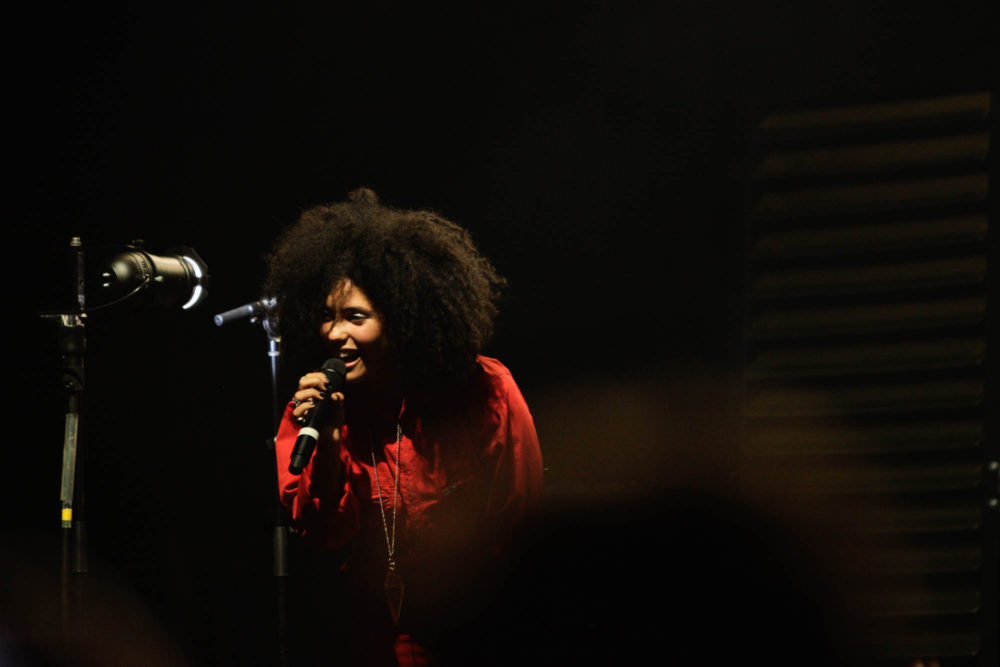In the song "Transmission," Lisa-Kaindé Diaz sings, "I've been thinking lately/How seasons fall apart back to the start/Should I share how I feel/Or bury it inside, or bury it inside?" When Diaz and her twin, Naomi, take the stage as the French-Cuban duo, Ibeyi, and you feel the fullness of those feelings wash over you, you know that burial is not the answer. Ibeyi's sound is transcendent and whole, shepherding you through the shadows with a fiercely kept light. In the soaring anthem, "Away Away," Lisa-Kaindé sings, "I don't give up/I don't give up, baby/I feel the pain, feel the pain/But I'm alive, I'm alive." They turn pain into life, translating grief and fear into a fearless expression of living. The Diaz sisters take on the worlds inside and outside with a meticulous minimalism that speaks volumes with space and fills spaces with a wash of harmonies and resonant rhythms.
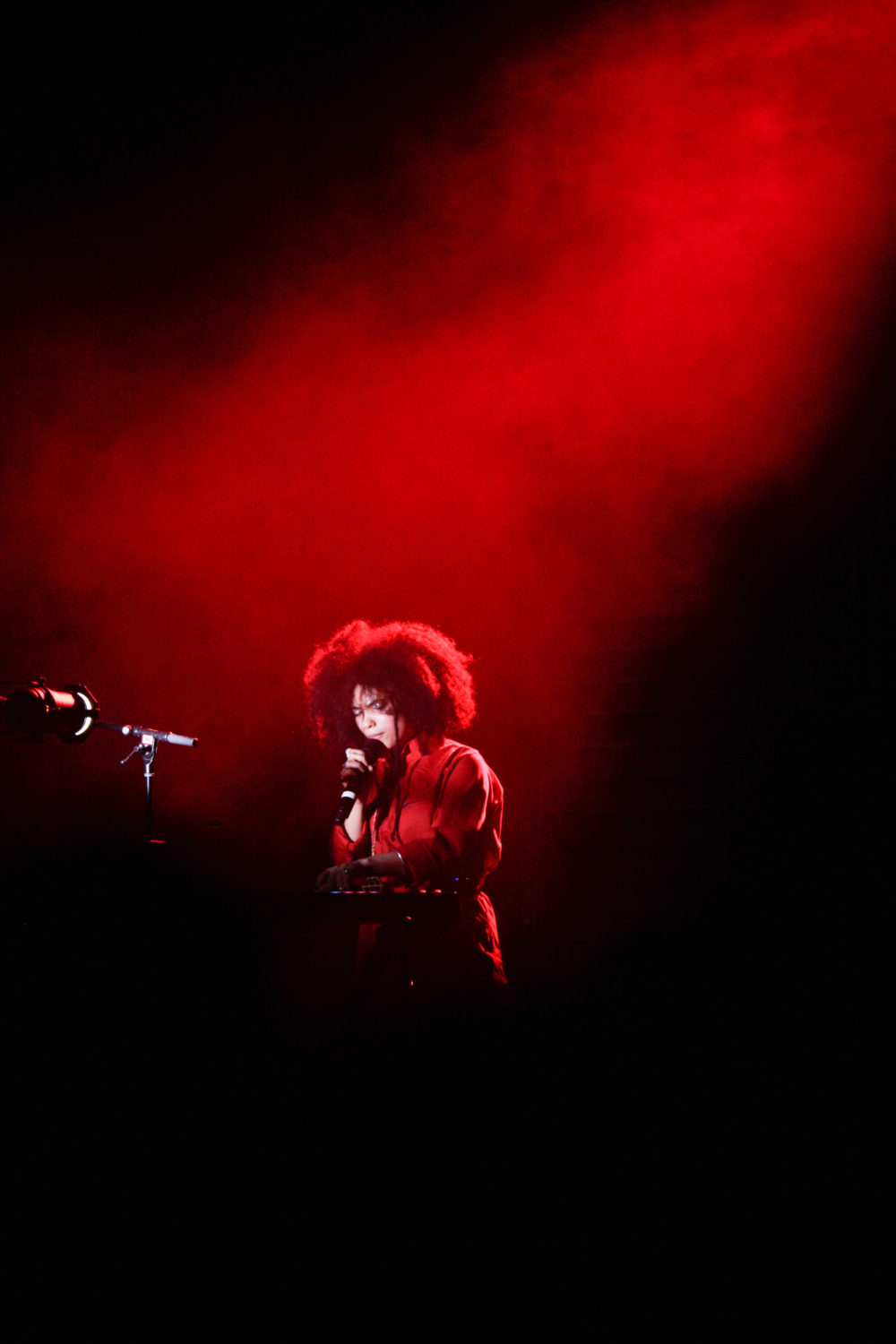
On Nov. 5, Ibeyi brought their magic to the stage at the voluminous Brooklyn Steel venue in Brooklyn, New York. The stage was set with two stations for each sister--keyboards for Lisa-Kaindé and cajón, bata drums and drum pads for Naomi--between which they danced from song to song. Around them were several framed shutters on wheels, which were rearranged piece by piece over the set to a finally rest in a line, shutters closed, displaying the image from the cover of their new album, Ash. The set opened as the album does, with the haunting "I Carried This For Years." The sisters emerged onto a shadowy stage to stand face-to-face a foot apart and began to sing over a looped sample of "Dragan I Slavei," sung by a Bulgarian women's chorus. Their rich, sharp-edged harmonies envelope you, setting the mood for Naomi's mighty, polyrhythmic electro-bata groove to pierce right through your center.
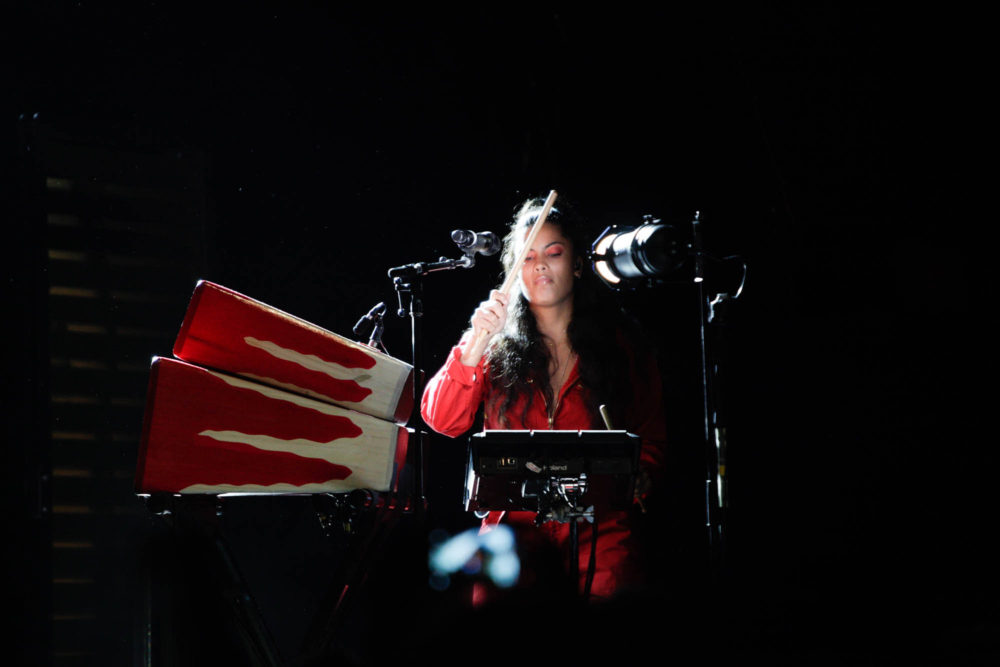

Many of the songs this night, like "I Carried This For Years," were from their new album, Ash. The record stays true to their depth of emotion but adventures beyond the closely held intimacy of their first album, Ibeyi, trying on brighter colors and a more expansive, outward sound. On Ibeyi, we heard mournful tributes to their lost loved ones: their father, Anga Diaz, and older sister, Yanira. On Ash, they still sing that grief but also raise their fists in proud, hopeful defiance ("Deathless," "No Man Is Big Enough For My Arms"), sing sweet lullabies to their baby niece living across the Atlantic ("Valé") and give each other love ("I Wanna Be Like You"). It's something potent and so very human to hear them move with ease between the tender touch of "Valé" ("Our voices will hug you/Music will be our arms") and the assertive declarations of survival and resistance in "Deathless" ("Whatever happens/We are deathless"). When Ibeyi sang "Deathless" at Brooklyn Steel, they let that chorus flow on repeat because the energy of the huge crowd all singing those words was too mighty to let go. The song was written in part about Lisa-Kaindé's wrongful arrest at age 16; they hope it serves as an empowering anthem for "every minority..for everybody that feels that they are nothing, that feels small, that feels not cared about...I want them to listen to our song and for three minutes feel large, powerful, deathless."
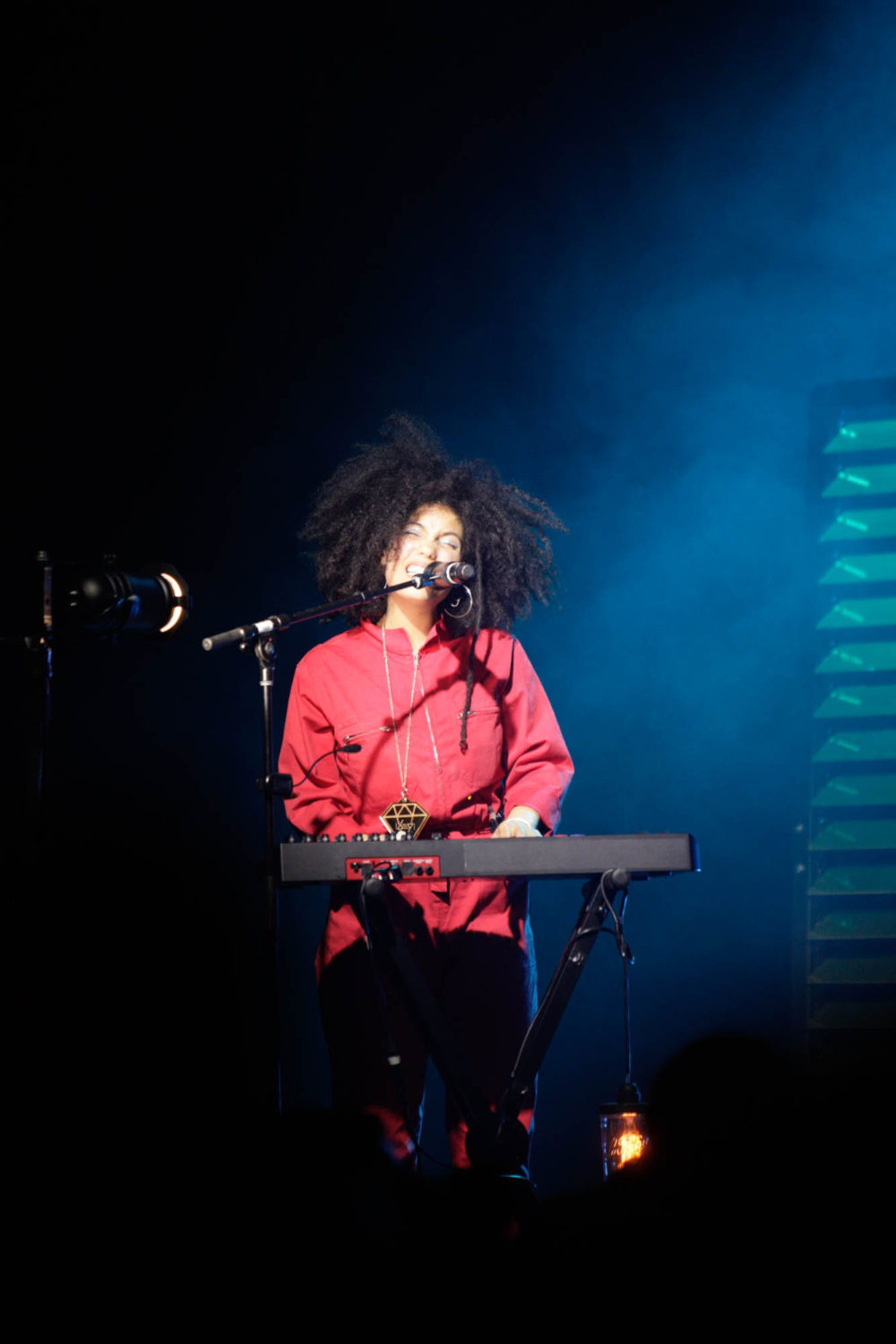
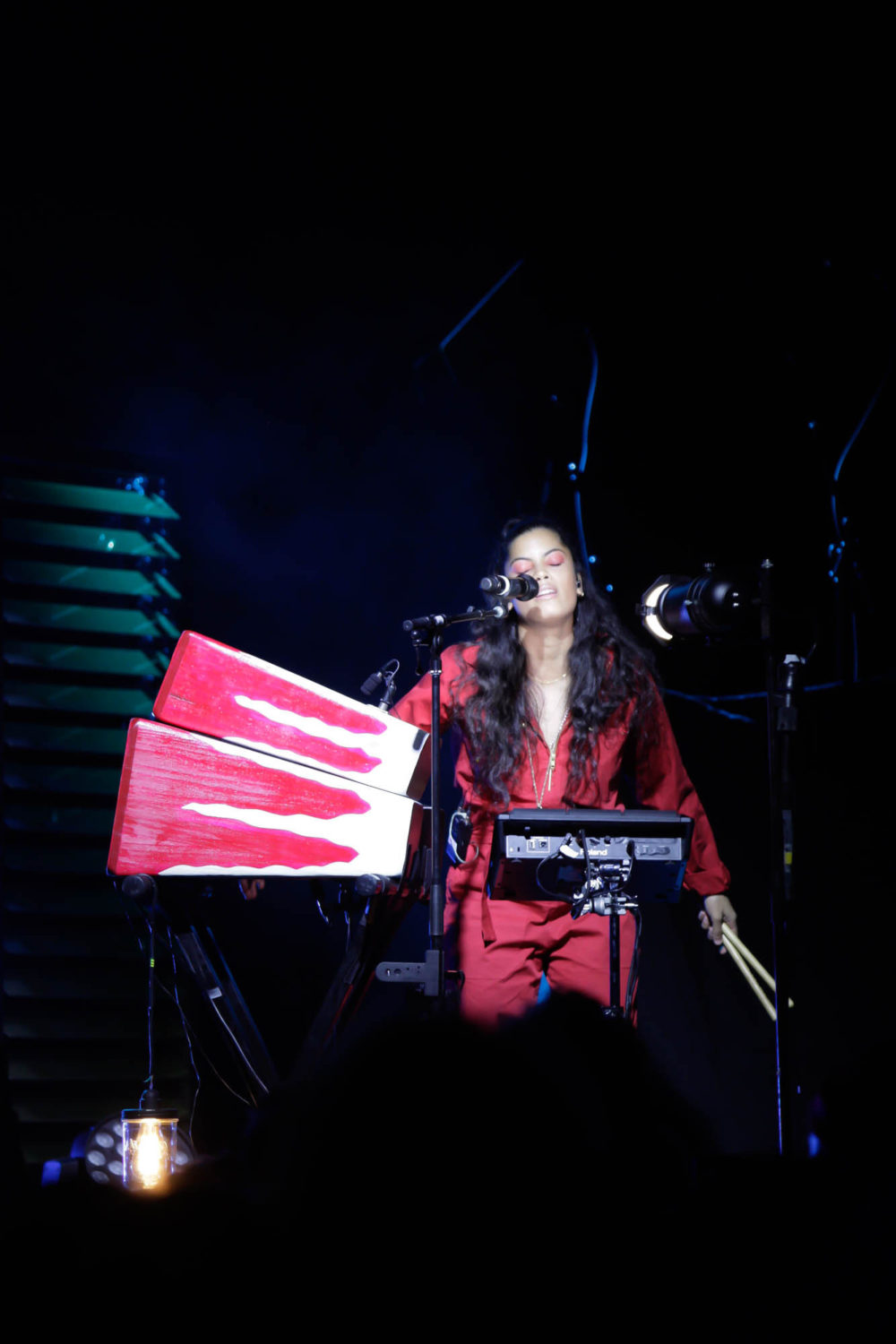
Ibeyi largely sings in English, peppered with bits of Spanish and French. But key to their lyrics, though, is Yoruba, the language of many of the enslaved people who were brought from West Africa to their father's birthplace of Cuba (Ibeyi means "twins" in Cuban Yoruba and the kaindé in Lisa-Kaindé designates that she was the second born ). It's also the liturgical language of the syncretic Cuban religion Santería, whose deities-- or orishas--feature prominently in Ibeyi's music. Their first album starts as many Santería ceremonies do, with an gorgeous a cappella Yoruba praise song to Eleggua, the orisha of openings, closings, doors, roads and such liminal things (for some interesting and speculative ruminations on Ibeyi's Yoruba/Santería connections, check out this blog post by Prince Adewale Oreshade).
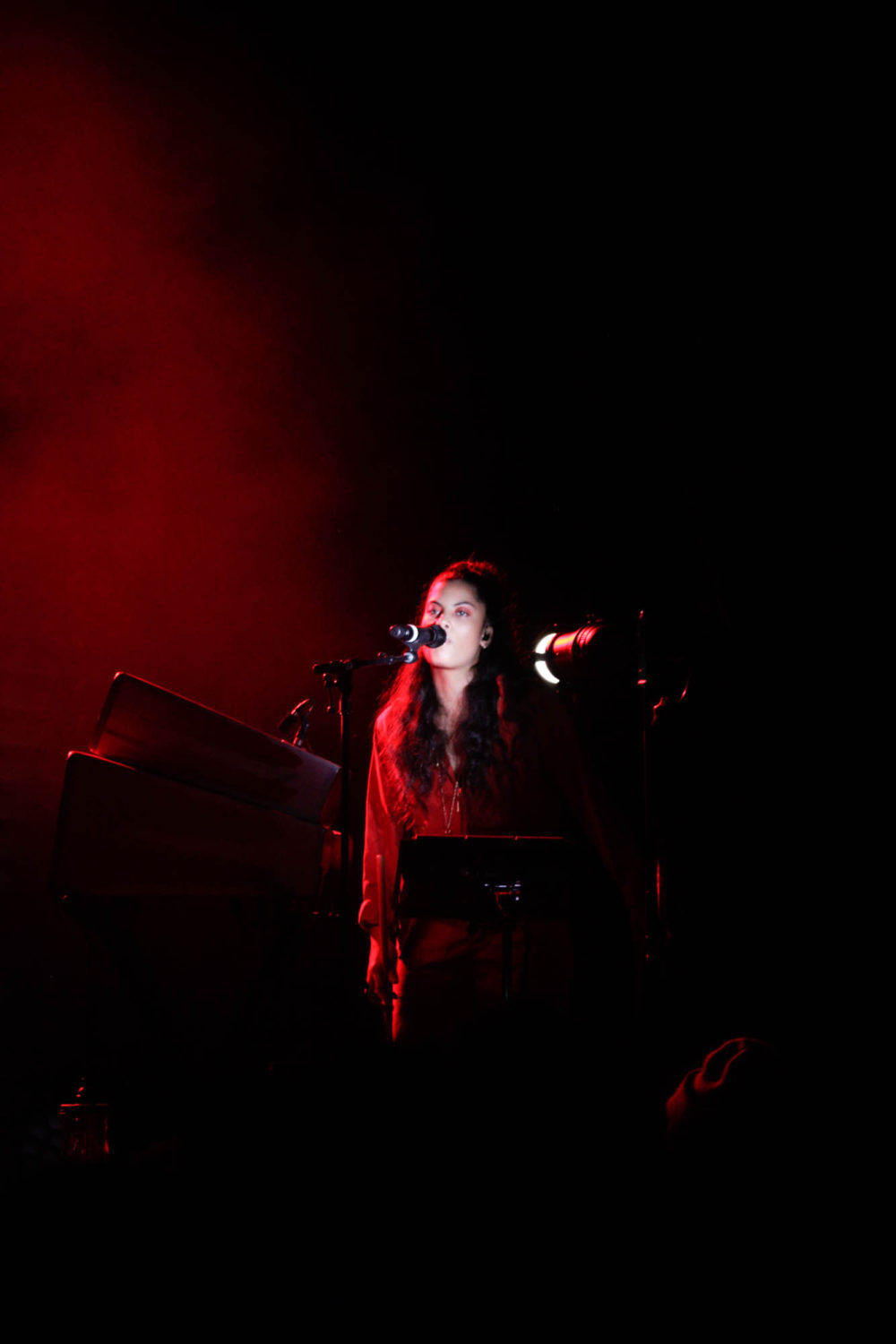
While that song wasn't on the set list for this concert, other Yoruba songs were, like the supplication to the orisha of rivers, Oshun, in their resplendent song "River," their swaying a cappella outro "Ibeyi," and one of the most transcendent, possessing songs of the night, "Oya." "Oya" is a loving entreaty to the powerful orisha of storms, wind and lightning whose chorus sings, "Take me Oya." When the Diaz sisters started in on the shimmering harmonies and driving drums that move that song, you could feel it take you away with them.
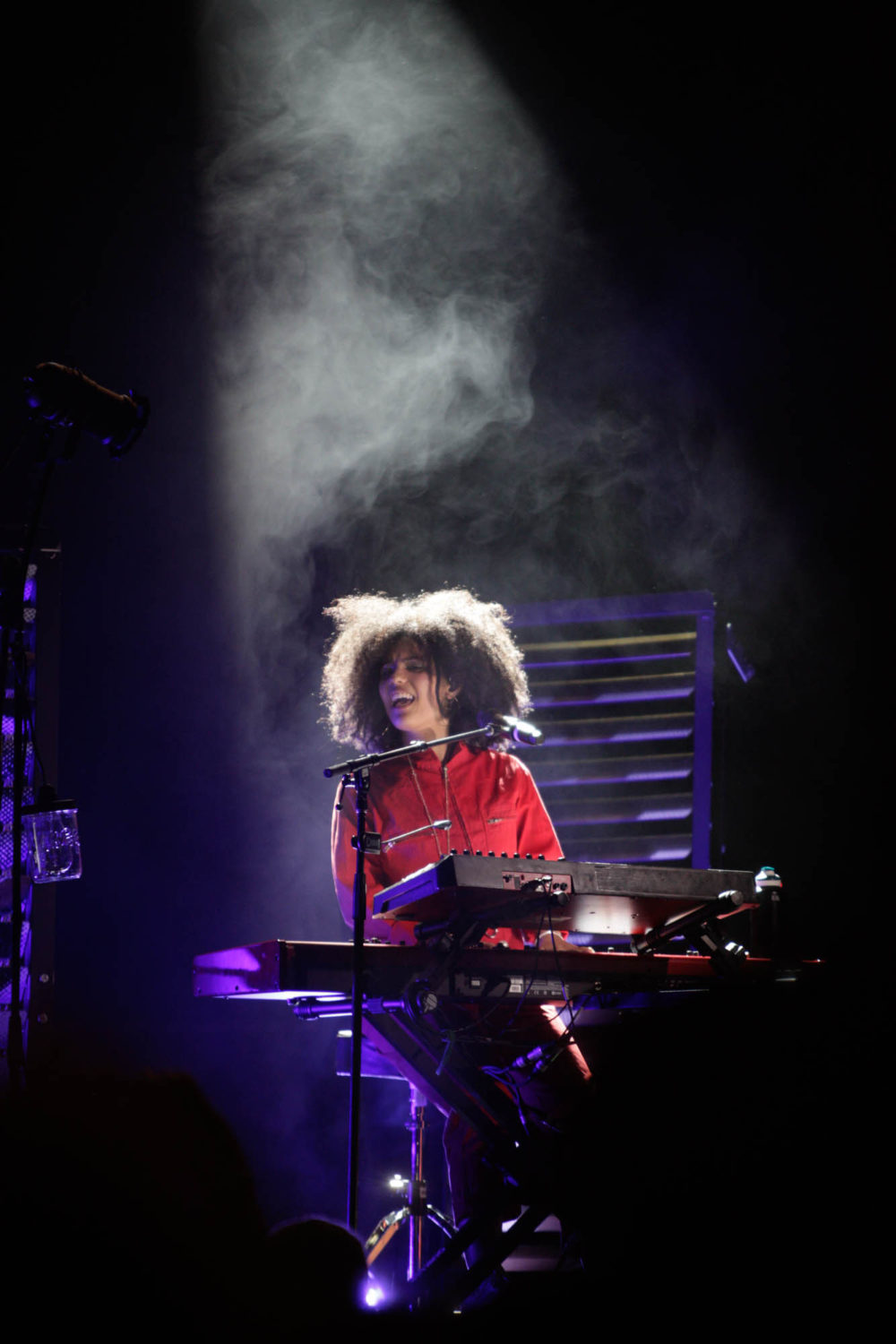
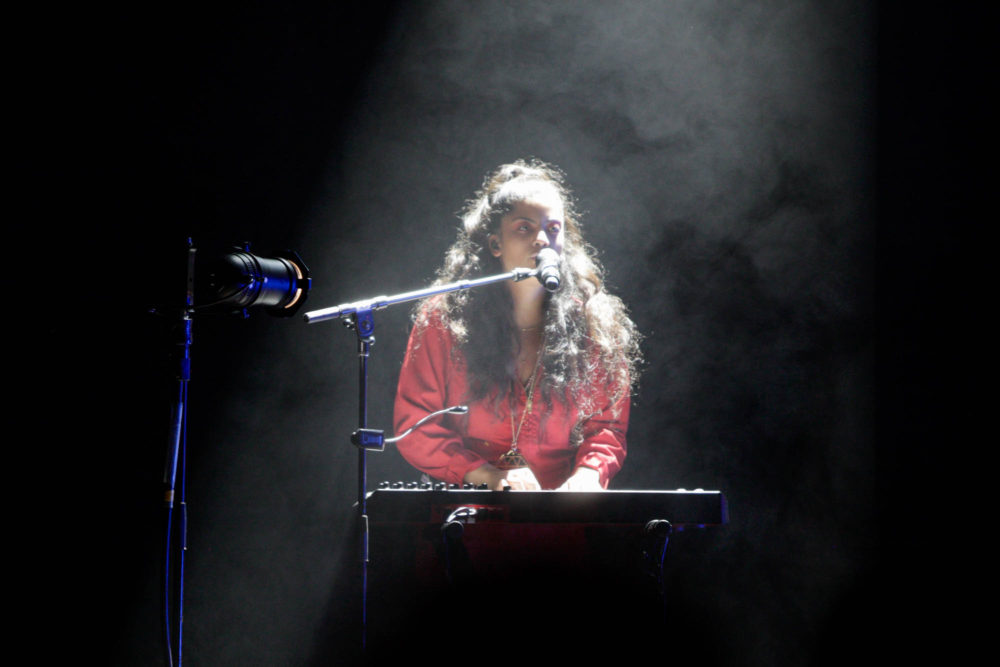
Though "Oya" was transporting on another plane, the proud, feminist anthem "No Man Is Big Enough For My Arms" was another expansive wonder, with inspiring audio clips of Michelle Obama overlaid with a soaring chorus.
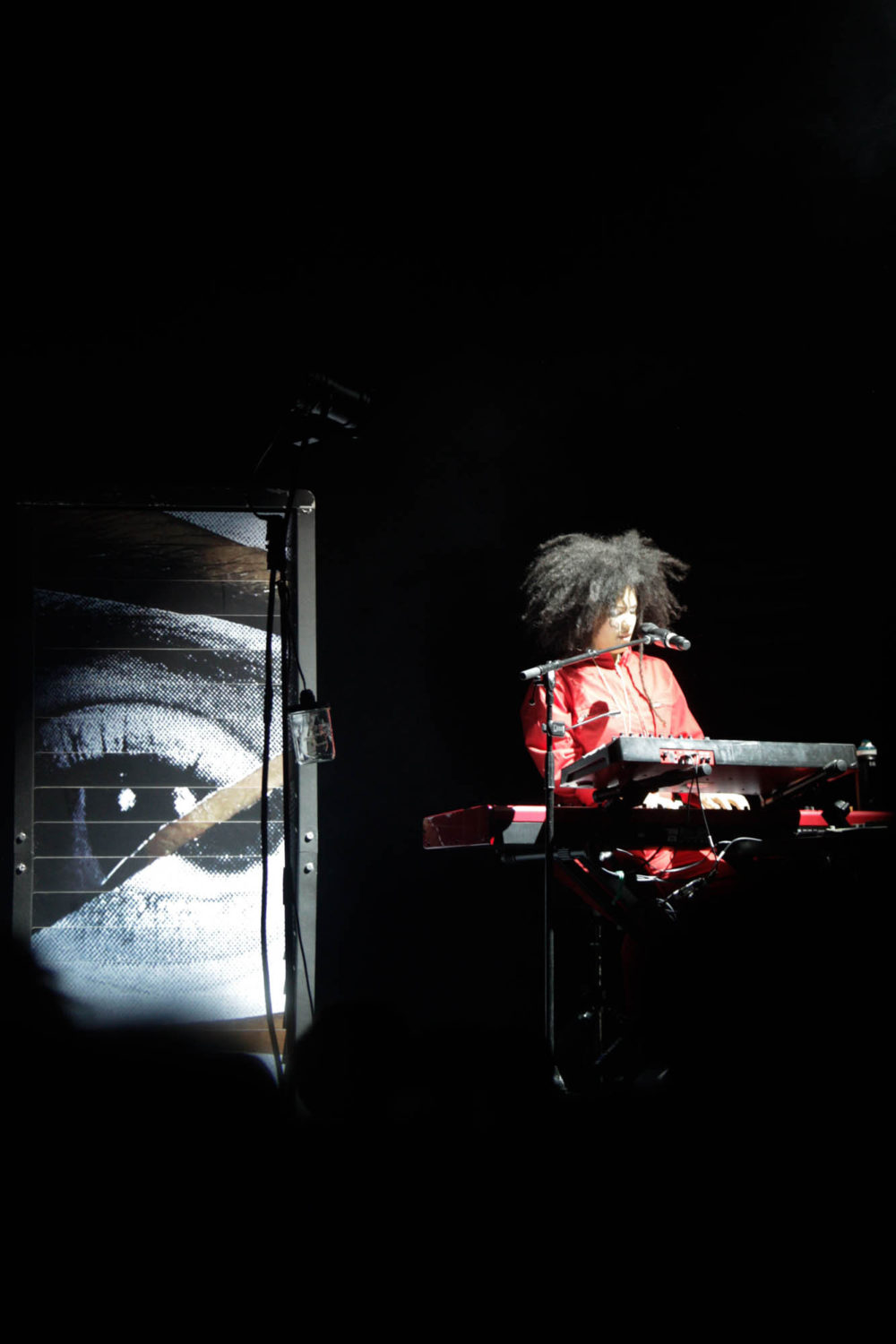
Throughout this whole performance, through the shadows and the light, it was abundantly, beautifully clear just how much fun the Naomi and Lisa-Kaindé were having. Their love of the music translated to an infectiously buoyant stage presence in their matching red jumpsuits, diamond-shaped necklaces and distinct dance moves. They hyped the crowd with love and the crowd loved them back, cheering them back on stage for not one but two encores. The words of their haunting song "Transmission/Michaelion" say well how it feels to be a part of an Ibeyi performance: "Sing, our arms are wide/ We climb the walls/Dance on the beats of hearts/One and all."
